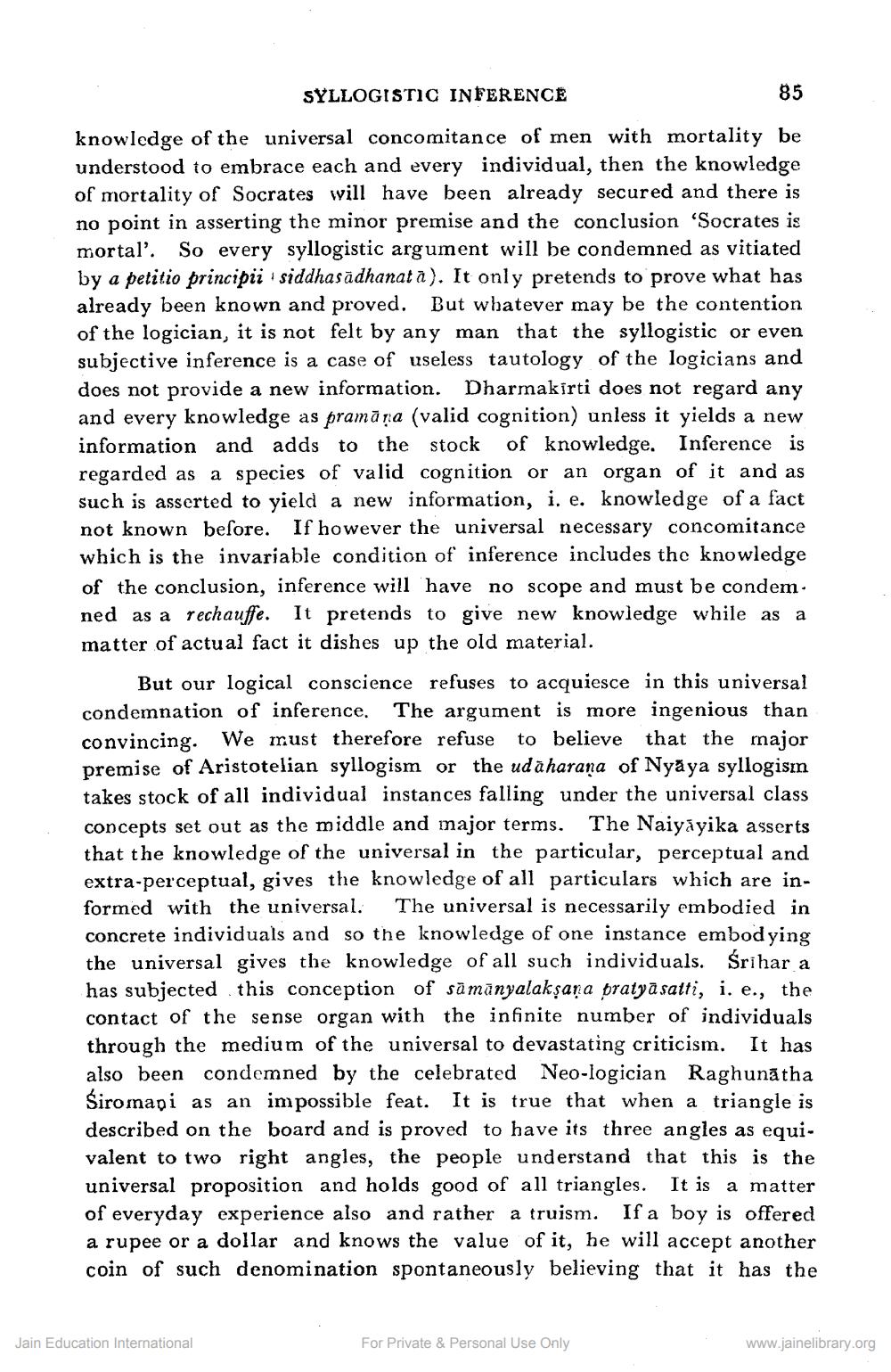________________
SYLLOGISTIC INFERENCE
85
knowledge of the universal concomitance of men with mortality be understood to embrace each and every individual, then the knowledge of mortality of Socrates will have been already secured and there is no point in asserting the minor premise and the conclusion 'Socrates is mortal'. So every syllogistic argument will be condemned as vitiated by a petitio principii siddhasādhanata). It only pretends to prove what has already been known and proved. But whatever may be the contention. of the logician, it is not felt by any man that the syllogistic or even subjective inference is a case of useless tautology of the logicians and does not provide a new information. Dharmakirti does not regard any and every knowledge as pramara (valid cognition) unless it yields a new information and adds to the stock of knowledge. Inference is regarded as a species of valid cognition or an organ of it and as such is asserted to yield a new information, i. e. knowledge of a fact not known before. If however the universal necessary concomitance which is the invariable condition of inference includes the knowledge of the conclusion, inference will have no scope and must be condem. ned as a rechauffe. It pretends to give new knowledge while as matter of actual fact it dishes up the old material.
a
But our logical conscience refuses to acquiesce in this universal condemnation of inference. The argument is more ingenious than convincing. We must therefore refuse to believe that the major premise of Aristotelian syllogism or the udaharana of Nyaya syllogism takes stock of all individual instances falling under the universal class concepts set out as the middle and major terms. The Naiyayika asserts that the knowledge of the universal in the particular, perceptual and extra-perceptual, gives the knowledge of all particulars which are informed with the universal. The universal is necessarily embodied in concrete individuals and so the knowledge of one instance embodying the universal gives the knowledge of all such individuals. Śrīhar a has subjected this conception of samanyalakṣaṇa pratyasatti, i. e., the contact of the sense organ with the infinite number of individuals through the medium of the universal to devastating criticism. It has also been condemned by the celebrated Neo-logician Raghunatha Śiromani as an impossible feat. It is true that when a triangle is described on the board and is proved to have its three angles as equivalent to two right angles, the people understand that this is the universal proposition and holds good of all triangles. It is a matter of everyday experience also and rather a truism. If a boy is offered a rupee or a dollar and knows the value of it, he will accept another coin of such denomination spontaneously believing that it has the
Jain Education International
For Private & Personal Use Only
www.jainelibrary.org




